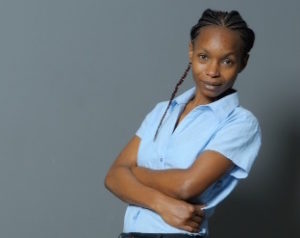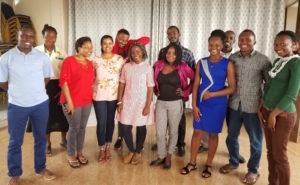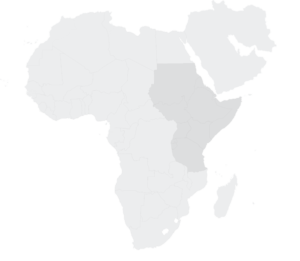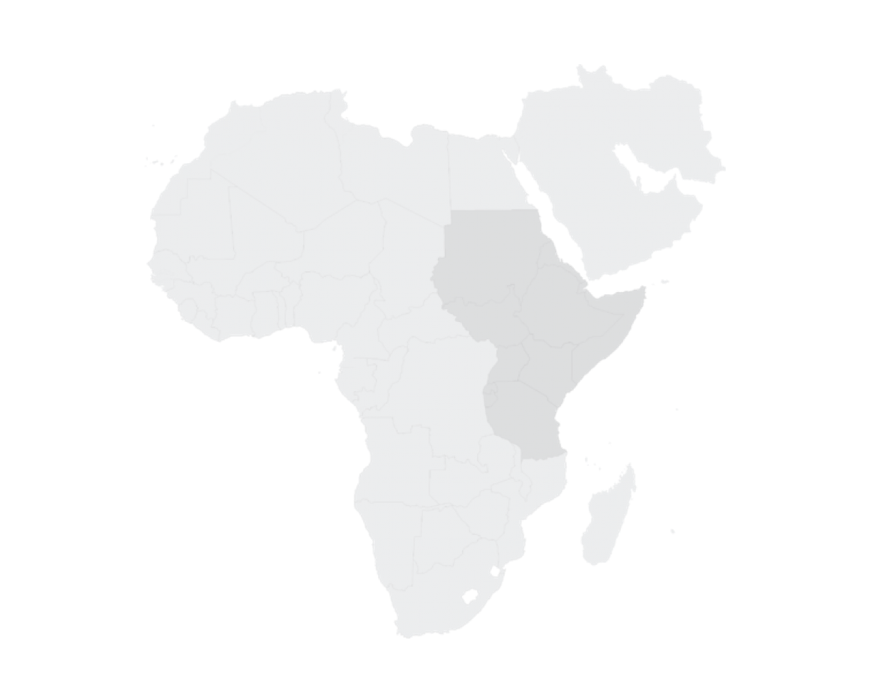Dear friends and colleagues,
A steady and proactive presence at regional and global human rights platforms is essential to enable the protection of human rights defenders (HRDs) at the national level in the East and Horn of Africa sub-region. World Press Freedom Day, commemorated in May, and the UN International Day in Support of Victims of Torture, celebrated this month, reminded us of the urgent need for efficient protection and promotion of HRDs at all levels of society.
The ongoing human rights violations in Sudan, where the Transitional Military Council continues to violently crack down on protestors, resulted in their suspension from the African Union (AU), a strong statement from the AU. However, the grave human rights situation calls for further and more progressive actions by regional and international actors, like the UN Human Rights Council (HRC), UN Security Council, AU, and African Commission on Human and Peoples’ Rights (ACHPR).
To respond to the needs of HRDs at the regional level, we convened the AfricanDefenders Convention (Johannesburg+20) that brought together HRDs from across Africa. I am proud to present the outcome: the Kampala Declaration of Human Rights Defenders and the Kampala Plan of Action (KAPA+10) – a roadmap for HRDs’ protection for the next 10 years. Further, we responded to the 64th session of the ACHPR, underlining that the restrictions put on HRDs prior to, and during, the session, clearly undermines the ACHPR, and African HRDs’ access to protection mechanisms.
We continued to advocate for the protection of HRDs by taking a proactive role at HRC41, with a focus on Sudan, Eritrea, and Tanzania. As the world’s leading human rights body we call on the HRC to scrutinise the dire human rights situation in these countries and adopt adequate resolutions to address them.
Lastly, I am pleased to present to you our Annual Report 2018, which highlights the human rights situation in the East and Horn of Africa sub-region, and our achievements in 2018. I wish to thank our donors, partners for your support, and the HRDs in our sub-region which daily stands up for human rights.
Yours sincerely,
Hassan Shire
Executive Director, DefendDefenders
Human Rights Defender of the Month (June 2019): Beatrice Githinji

-
Report: Annual Report 2018, DefendDefenders, June 2019
-
Report: No Advice Without Knowledge: Human Rights Council item 10 Resolutions, DefendDefenders, June 2019Report: Eritrea: Repression Without Borders:Threats to Human Rights Defenders Abroad, Amnesty International, 2019
Check out:
- Call for Applications: DefendDefenders seeks a motivated, creative, and tech-savvy Communications Fellow to boost our online presence and impact. Read more here. Deadline: 11 July 2019.
- Call for Nominations: The fourth edition of the Human Rights Defenders Awards on 29 November aims to honour and publicly recognise the work of Kenyan HRDs who have demonstrated their work and impact in the protection and promotion of human rights and freedoms. Selection criteria can be found here. Read more. Deadline: 15 July 2019.
- DefendDefenders are actively participating in HRC41, taking place from 24 June to 12 July in Geneva, Switzerland. At the session, we continue to advocate for the protection of HRDs in the East and Horn of Africa sub-region, with a focus on Sudan, Eritrea, and Tanzania. We invite everyone to follow us on social media and our website for updates about the session;
-
On 11 June, DefendDefenders, alongside 29 other civil society organisations (CSOs) sent a letter to the HRC urging them to continue to scrutinise the dire human rights situation in Eritrea, and the urgency to adopt a resolution on Eritrea at HRC41;
-
DefendDefenders launched our report No Advice Without Knowledge: Human Rights Council item 10 Resolutions, which examines the scrutiny elements in item 10 resolutions, and presents recommendations to the HRC, governments, and human rights advocates;
-
DefendDefenders organised a workshop on Lawyers as HRDs, together with Goldsmith University in London, England, welcoming human rights lawyers from the East and Horn of Africa sub-region to share experiences and good practices. The workshop will conclude in a briefing paper on the same topic;
-
DefendDefenders organised the final workshop of the 2018-2019 Doc-IT Program. Stay tuned for announcements later in the year for new opportunities to join in the Doc-IT program;

The third round the 2018-2019 Doc-IT program in Kampala, Uganda, June 2019
-
DefendDefenders participated in Rightscon.org in Tunis. At the event, a Safe Sisters (safesisters.net) fellow, Zaituni Njovu from Tanzania, received the Human Rights Heroes Award;
-
On 7 June, DefendDefenders partook in the official launch of the South Sudan Human Rights Defenders Network (SSHRDN) in Juba, South Sudan. The SSHRDN connects HRDs across the country and works closely with regional organisations to help them mitigate risks, as well as to provide a platform for civil society activists to share information and best practices;
-
DefendDefenders was seconded to the Access Now IT helpdesk located in Tunis, Tunisia;
-
DefendDefenders conducted a training of trainers (ToT) in digital security for South Sudanese HRDs;
-
DefendDefenders received 26 protection grant requests; five were approved, two were referred, 16 are pending approval, and three were rejected. Most applicants were from Sudan, due to the current grave human rights situation in the country;
-
On 18 June, DefendDefenders organised a meeting for exiled HRDs in Uganda to assess their needs and resilience strategies, as well as to develop an agenda for the upcoming meeting of HRD Protection Service Providers. The 27 HRDs came from Burundi, the Democratic Republic of Congo, Eritrea, Rwanda, Somalia, South Sudan, Sudan, and Tanzania;
-
In June 2019, DefendDefenders participated at the HRD Mental Wellbeing and Temporary International Relocation Retreat in Barcelona, Spain. The retreat brought together relocation coordinators and mental health therapists from Africa, Europe, Asia, North America, and Latin America; and
-
Between 10 and 14 June 2019, DefendDefenders organised a security management ToT for 14 partners of Nonviolent Peaceforce (NP), Community Empowerment for Progress Organisation (CEPO), and SSHRDN to raise their capacity in physical and digital security management and training methodology. Participants developed training curricula and training outlines on security incident and threat analysis, VPN, information backup, and email encryption – FlowCrypt.
Updates from AfricanDefenders:
- Twenty years after the 1999 All African Human Rights Defenders Conference held in Johannesburg, AfricanDefenders convened the AfricanDefenders Convention (Johannesburg+20) from 12-14 June 2019 in Zanzibar, Tanzania. The Convention brought together HRDs from across Africa, including Honourable Soyata Maiga, Chairperson of the ACHPR, and Honourable Justice Sylvain Ore, President of the African Court on Human and Peoples’ Rights (AfCHPR), to review the network plan of action and design strategies for the future. Read the Communiqué;
- The third edition of AfricanDefenders’ Shield Awards recognised the positive impact of five outstanding African HRDs. Discover the winners’ profiles; and
- In June, AfricanDefenders extended protection support to five HRDs under the Ubuntu Hub Cities initiative.

AfricanDefenders Convention in Zanzibar, Tanzania, June 2019

-
On 3 June, Burundi’s National Communication Council (CNC) accused Radio France Internationale (RFI) of airing unbalanced information in an interview with Burundian human rights activist Marguerite Barankitse. In the interview, Barankitse highlighted human rights violations committed in Burundi, and condemned the reactions of African and international communities. The CNC stated that it will assess the misconduct committed by the RFI and impose sanctions.
-
On 3 June, Burundi suspended the country’s last independent civil rights group, Parcem, indefinitely, accusing it of “disturbing peace and public order.” Parcem had recently launched a campaign highlighting Burundi’s economic crisis, notably giving figures on poverty that conflicted with official data. The organisation was also initially suspended in 2015, but was allowed to resume its activities when its legal representatives accepted conditions imposed by the authorities.
-
On 4 June, Orthodox religious leaders in Ethiopia called on the government to block a US gay travel company from touring the country’s ancient sites, notably the holy city of Lalibela. The itinerary of the group sparked controversy in Ethiopia, where draconian laws punish consentual same-sex acts with up to 15 years in prison. Lesbian, gay, bisexual, and transgender(LGBT+) HRDs face significant obstacles from both the government and society at large, and are often marginalised even within the human rights movement itself.
-
On 5 June, one student was killed and about 20 injured at Aksum University in Tigray. Ethnic-based violence has become a recurring problem at university campuses, reflecting the overall ethnic tensions in the country.
-
On 7 June, police in Addis Ababa prevented journalist and former Amnesty International Prisoner of Conscience, Eskinder Nega, from holding a press conference about Senai, his new TV station. Police officers blocked the entrance to the Hilton Hotel, turning away journalists and participants. Eskinder was released in February 2018, after serving seven years of the 18 year sentence he received for his human rights work. Since his release, Eskinder has been publishing the weekly Ethiopis newspaper, leading discussions on issues such as democracy, ethnic nationalism, and the administration of Addis Ababa.
-
Security forces continue to carry out raids in private homes where religious groups, especially Pentecostal Christians, meet for their community prayers. It was reported that as many as 30 religious persons were detained in early June in Asmara. Eritrean authorities continue to demand “full control” of all the Church-run organisations and initiatives in the country, including private schools, medical clinics, and orphanages.
-
On 13 June, Kenyan human rights activists held a vigil for Sudan. Police disrupted the vigil throwing tear gas into the crowd, labelling the association of activists as unlawful. Activists attending the vigil said they were there to show solidarity with the suffering of fellow Africans in Sudan.
-
On 21 June, the Ministry of Justice announced that the Rwandan Government has so far achieved over 80 per cent of the Universal Periodic Review (UPR) recommendations, which were adopted in 2015. Rwanda’s next UPR is in 2020.
-
On 26 June, during an interview with France 24, President Paul Kagame dismissed allegations of Rwanda’s human rights record, responding to a report released by the European Union (EU), and stated that the report is ridiculous. Kagame said he believes that Europe holds a superiority complex in regards to human rights.
-
On 3 June, 17 members of the armed forces of Somaliland and Puntland, who were captured in an armed conflict that broke out in May 2018, were released and returned home with the help of the International Committee of the Red Cross (ICRC).
-
On 15 June, a car bomb killed at least eight people in Mogadishu, with Al-Shabaab claiming responsibility.
-
South Sudan recently ratified two international human rights covenants, namely the International Covenant on Civil and Political Rights (ICCPR), and the International Covenant on Economic, Social and Cultural Rights (ICESCR), and their respective First Optional Protocols, without reservations.
-
On 3 June 2019 security forces in Khartoum fired at peaceful protestors, in what was reported as the deadliest attack on protestors since the ousting of Omar al Bashir in April 2019. Sudan’s Transitional Military Council (TMC) admitted to having received orders to disperse the protestors, and defended the killing of more than 100 people.“On 3 June, activists reported mobile Internet disruptions. The TMC offered no justification for restricting Internet access for civilians. On 10 June, the disruptions escalated following the TMC’s orders to cut remaining fixed line connections, which shut down nearly all Internet access in Sudan. The disruptions amount to a violation of the right to freedom of expression and access to information.
-
The ruling military Council has held the opposition Forces for Freedom and Change (FFC) responsible for the loss of life during the massive march on 30 June.
-
On 27 June, Tanzanian Parliament passed the Written Laws (Miscellaneous Amendments No. 3 of 2019) into law. The law amends eight laws including the Non-Governmental Organisations Act and largely restricts the right to freedom of expression, association, and peaceful assembly. The law was made public on 19 June and debated under a certificate of urgency which did not allow for meaningful participation of civil society in the lawmaking process.
-
On 17 June, several Rwandans filed a lawsuit against the Ugandan Government at the East African Court of Justice, claiming they were illegally arrested and tortured by Ugandan security agencies. A couple were arrested on 23 July 2018, while travelling to attend a funeral for a family member. One person was detained in a Ugandan military intelligence ‘safe house’ on 12 July 2018, before he was released on 24 April 2019. The individuals are looking to get remedies for bodily harm they have suffered, and compensation because they were dispossessed of their money.
-
Robert Kyagulanyi, known as Bobi Wine, was invited to address human rights defendersand politicians at the International Global Peace and Human Rights Summit in Chicago, United States. At the event, he stressed that the national human rights situation in Uganda is getting worse. Several activists has blamed the deteriorating human rights situation, including illegal detentions and torture, on government security agencies.

